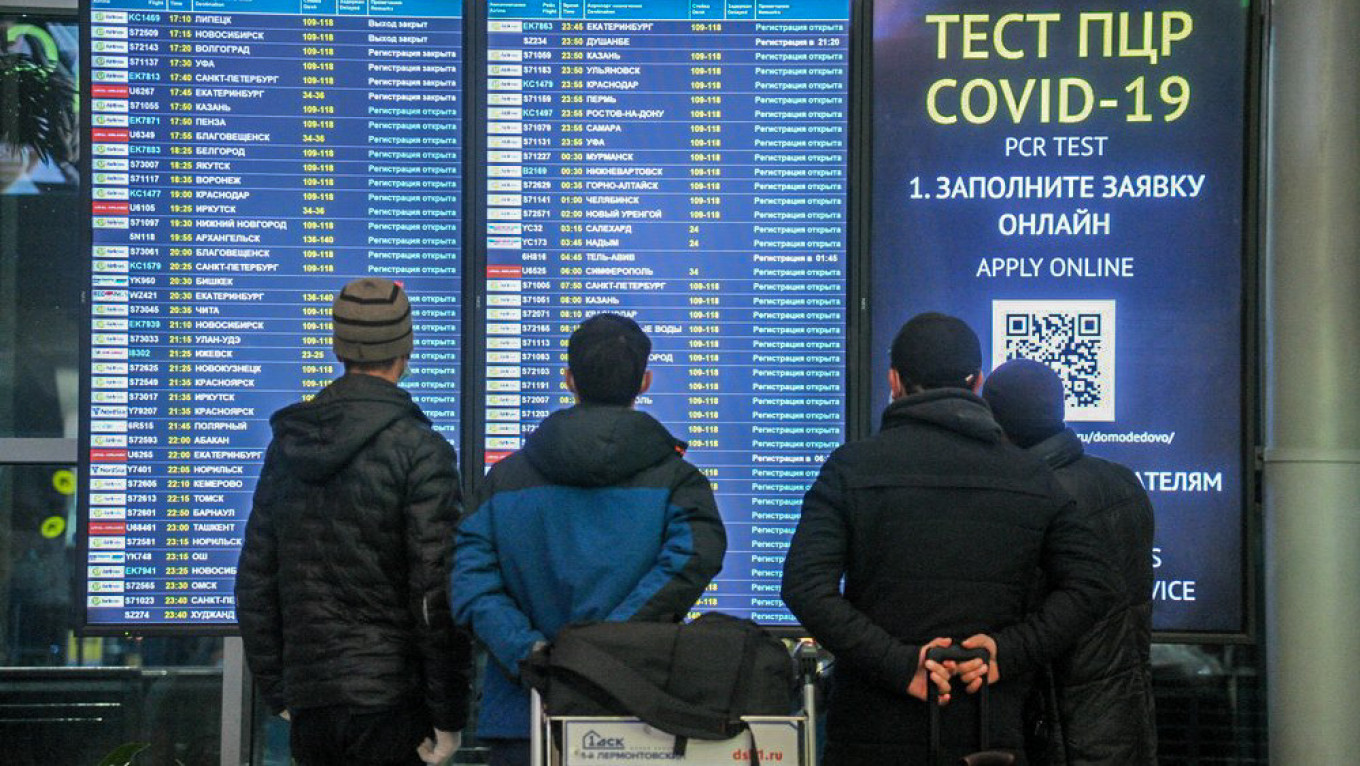
Russia’s Pobeda low-cost airline has canceled 110 flights to seven cities over a disruptive airspace overhaul that resulted in outdated flight charts and databases for western Russia, media reported Wednesday.
European regulators last month warned of major changes to departure and arrival procedures after the restructure covering 49 airports across European Russia which takes effect Thursday. Russian transportation authorities had said the restructuring would cut the workload of air traffic controllers by half and delays at landing by 70%.
Pobeda canceled flights to the Russian cities of Astrakhan, Izhevsk, Kirov, Kurgan, Magas, Petrozavodsk and Yaroslavl through Dec. 31. The RBC news website cited the airline’s booking system, the airports’ arrival schedules and confirmed the cancellations with an unnamed Pobeda source.
Magas, the capital of southern Russia’s republic of Ingushetia, accounts for more than half of the canceled flights.
“Considering the mountains there, flights to Magas in these conditions amount to suicide,” RBC quoted an unnamed Pobeda pilot as saying.
The U.S. navigational information provider Jeppesen failed to update flight databases because “the Russian aviation authorities violated the recommended deadlines for publishing amendments,” Pobeda’s director of flight operations Denis Petrikov had said in an internal communication cited earlier by RBC. Russia’s Federal Air Transportation Agency said it released the update one month before it took effect in line with International Civil Aviation Organization (ICAO) standards.
Jeppesen, as well as other providers Lufthansa Systems and Navblue, have alerted their customers over potential incomplete data at dozens of Russian airports, according to the FlightGlobal aviation news website. The European Union Aviation Safety Agency urged in a Nov. 19 navigation data alert to inform cockpit crews about the deficiencies to increase awareness.
Pobeda, a subsidiary of Russia’s flagship carrier Aeroflot, kept flights to seven other Russian cities by adding instructors who would help “blind-land” the planes without outdated navigation data.
